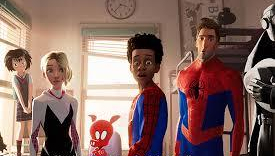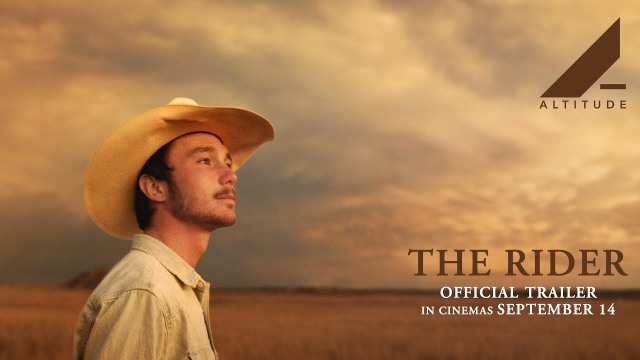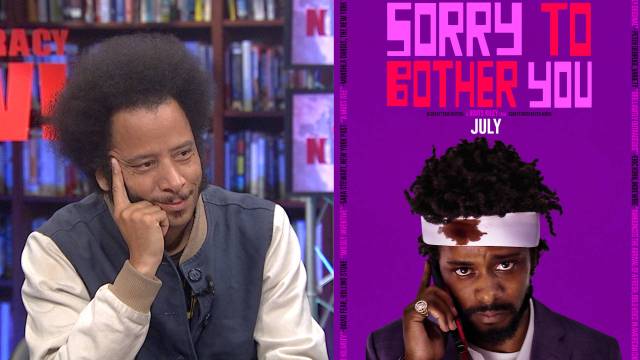When I first started to see myself as a film person, the release of the Oscar nominations would devastate me. I’d think I’d been diligently seeing films, and yet the ones I loved, ones that seemed to be darlings of the indie cinemas I attended, didn’t get nominated. Last year with great films like Mother!, The Killing of a Sacred Deer and my personal favorite The Florida Project going largely unrecognized, I finally began to clue in: Oscar movies aren’t the best that’s out there. Rather the academy specializes in a niche of film that feels more pretentious than superhero movies, but isn’t necessarily of any higher quality.
This year ironically, a superhero movie was nominated, and in fairness, it was one I liked quite a bit. That said, my favorite films of the year were, again, virtually shut out of the Oscars: no nominations went to Thoroughbreds, one went to First Reformed and none went to Sorry to Bother You.
I think by now I’ve learned not to care. Not only do I realize that the academy are not the be-all-end-all guardians of film respectability, but I’ve almost reminded myself that giving out awards is itself a questionable practice. On the one hand, public awards are a means of celebrating a field and bringing fans “together.” But on the other hand, whenever there are winners there are far more non-winners and especially when there are children nominated for awards, I can’t help but feel bad for the actors who have to tensely sit through all the ceremony only to find they have not won.
Furthermore, no matter how one feels about giving out awards, many of the Oscar categories feel like they are beyond the realm of reasonable judgement. Does it make sense to say X was a better actor than Y, when X and Y were not compared in playing the same role? In no other context would such an apples and oranges comparison be made.
I have decided as a modest participant in film culture to make an Oscars list. I ask however, reader, that you not see this as a list of awards so much as my way of participating in this celebration of film culture. The films and actors I am naming are not objectively superior to others, only memorable parts of my film-viewing experience of 2018. And I look forward to reading a diversity of such lists in days to come.
BEST ACTOR IN A SUPPORTING ROLE
Anton Yelchin- Thoroughbreds

Anton Yelchin https://goo.gl/images/oDmPBZ
Thoroughbreds combines the intensity of a murder thriller with the vulnerability of its (anti)-heroes to create a uniquely tense viewing experience. Yelchin completes this power dynamic matrix through his portrayal of a down-on-his-luck ex-convict. Another good choice here would be Michael B. Jordan whose three-dimensional and politicized portrayal of a Marvel Supervillain played a big role in Black Panther’s rise to critical acclaim.
BEST ACTRESS IN A SUPPORTING ROLE
Regina King- If Beale Street Could Talk
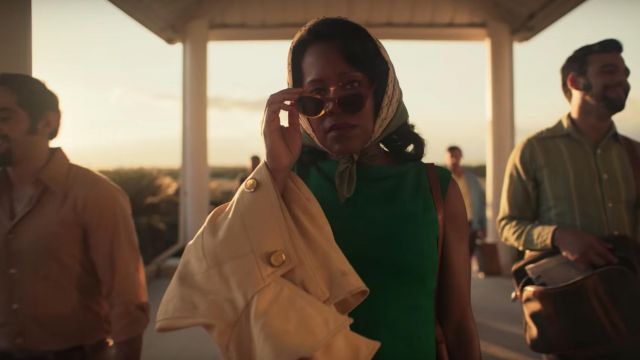
Regina King https://goo.gl/images/vsbJHm
This may be the category where I and the Academy reach the same conclusion. If Beale Street Could Talk is a mainstream-ish Oscar movie. I say ish, because it for whatever reason, seems to have fallen just short of capturing the same attention as Moonlight. A positive reason why the film is on the Oscars’ fringes is that unlike other topical works, it focuses less on messaging and drama then it does on relationships and emotions. King’s character bears the brunt of this, acting through the scenes where the most resolve is required, allowing her performance to shine.
Alternatively, those who believe awards are about conscious talent may question this choice, but I dare anyone who has seen Capernaum to not at least entertain the idea that Boluwatife Bankole, who plays perhaps the most dynamic infant you’ll ever seen on screen, is not worthy of a best supporting actress nomination.
BEST ACTOR
Ethan Hawke-First Reformed

Ethan Hawke https://goo.gl/images/zUzzSe
Hawke was an excellent choice for portraying a stereotype defying-priest: a leftist-inclined thinker whose abilities to lead a congregation is maligned by his own existential anxiety. Is his character engaged in a personal drama or a story about the human and ecological race? Does he believe he can be saved, does he think he’s doomed or does he think he has to be the one who saves in the absence of divine help? While I’ll certainly be rooting for Paul Schrader to win a best-original screenplay for this one, this film is a character study, and as such its a shame the academy missed a chance to honor Hawke’s defining contribution.
BEST ACTRESS
Olivia Cooke-Thoroughbreds
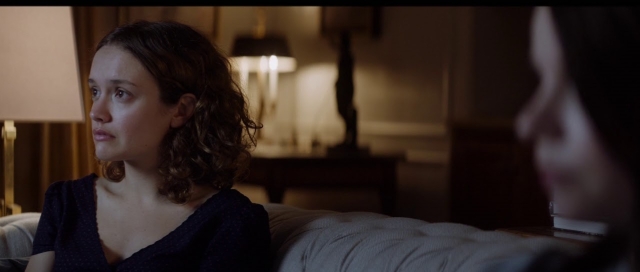
Olivia Cooke https://goo.gl/images/dwzBgE
Cooke plays a character who supposedly has no emotions, a proposition that audiences are made to question, but never doubt. Cooke charismatically embodies this trying ambiguity, which stays powerful up to and including in the film’s defining-finale.
While it’s tempting to point out charismatic portrayals in pieces like this, straight-men (or straight-women or straight-girls) can be just as important in film construction. This is why Rachelle Vinberg‘s role in Skate Kitchen is so memorable. In absurd universes sometimes audiences need a “reasonable” figure to grasp onto. Sometimes these figures can feel a bit like throw-ins, whose reasonability makes them boring or fourth-wall breaking. Vinberg’s character, however, is a quiet, vulnerable figure, meaning her reasonability only adds to her depth and struggle.
Finally, of the actual nominees I think awarding Lady Gaga for her role in A Star is Born would be the most appropriate way of honoring that film: as I believe its biggest strength is taking the charming but simple and dated story of Esther Blodgett, and modernizing it through Gaga’s character, Ally.
OTHER ACTING AWARDS
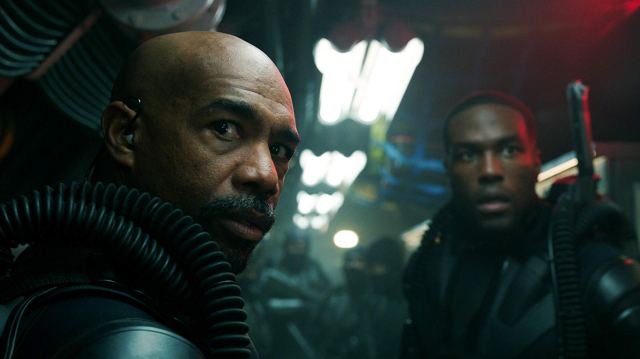
Michael Beach https://goo.gl/images/mCvhx5
I’ve always been a bit troubled by the fact that the best actor/actress awards seem to be reserved only for the top billed members of each gender, relegating other major characters to the “supporting” category. While there are arguably exceptions, such as Viola Davis’ nomination for her role in Doubt and Mahershala Ali’s win for Moonlight, generally the supporting-categories are not used to honor what I think they should: talented actors who aren’t in leading roles: perhaps even those playing “minor characters.” While he doesn’t get to do as much as Regina King, for example, Brian Tyree Henry, certainly leaves a lasting emotional impression for his one scene in If Beale Street Could Talk. And weird as this is to write, I’ll say what I did before: Michael Beach’s brief, sinister-while-affectionate appearance in Aquaman was perhaps my favorite part of that movie.
I also think it’s a shame that voice actors never get nominated for acting awards, perhaps justifying a best voice-actor category. I get it, they aren’t (usually) burdened with the challenge of physical acting, but that doesn’t mean they’re doing nothing. With that said, I found Katheryn Hahn’s unique portrayal of a familiar character was a defining feature of Spiderman Into the Spider-Verse, making her my choice for this theoretical category.
BEST ANIMATED PICTURE
Spiderman Into the Spider-Verse
Ok, I went with the safe one here, in a field where there are never that many options. My view on this category is that essentially it’s the only one that’s inclusive of children, making it important to me that it always goes to a family friendly film. While I think the engaging and playful Into the Spider-Verse is the best choice especially when this criteria is taken into consideration, I’m primarily writing this to express my comfort with the academy going for Isle of Dogs instead, a film which is not only a great visual representation of Wes Anderson’s style, but is also, despite its stylistic pretensions, a reasonably family friendly film.
BEST CINEMATOGRAPHER
Christopher Aoun Capernaum
Capernaum is the story of a child’s search for security in an unjust and under-resourced world. In balancing shots that show the immensity and bleakness of parts of Beirut with those that focus on the young protagonists direct view Aoun and director Nadine Labaki struck a balance necessary for this kind of world building.
BEST DIRECTOR
Chloe Zhao The Rider
Zhang immersed herself in a world and told its story, coming out with a visually stunning work . Perhaps Zhao’s subtlest, but biggest challenge was in writing characters based on the actors playing them and then having to train the actors to differentiate between themselves and their fictionalized personas.
Aneesh Chaganty should also be recognized for his solid debut: Searching. I certainly wasn’t convinced by the gimmick of seeing a film presented all on computer screens, but Chaganty made it work, striking the right balance between visuals and storytelling.
Of the nominees I’d be happy to see Spike Lee finally win for BlackKklansman, given the cartoonishness and wit he layered into what, under another director/co-writer , could have turned out to be a more conventional biopic.
BEST PICTURE
Sorry to Bother You
Colorful, action-packed and strange, for me Sorry to Bother You’s biggest achievement is that it manages to offer new political approach without feeling like its artistic elements are a mere vessel for its politics. Writer-director Boots Riley’s critique is, furthermore, not one of a specific problem or social ill, but of the general fabric of American capitalist society. This approach allowed him to approach satire through world-building. Perhaps Sorry to Bother You was too radical for the Academy to Consider. Perhaps they don’t like horses (don’t look up what that means if you don’t want a spoiler). Either way, they missed out.
